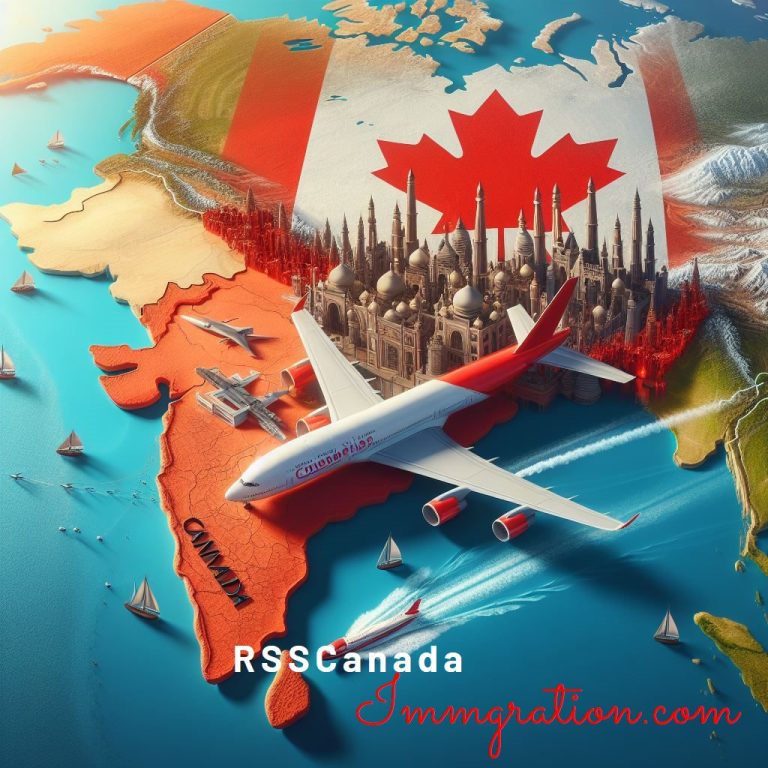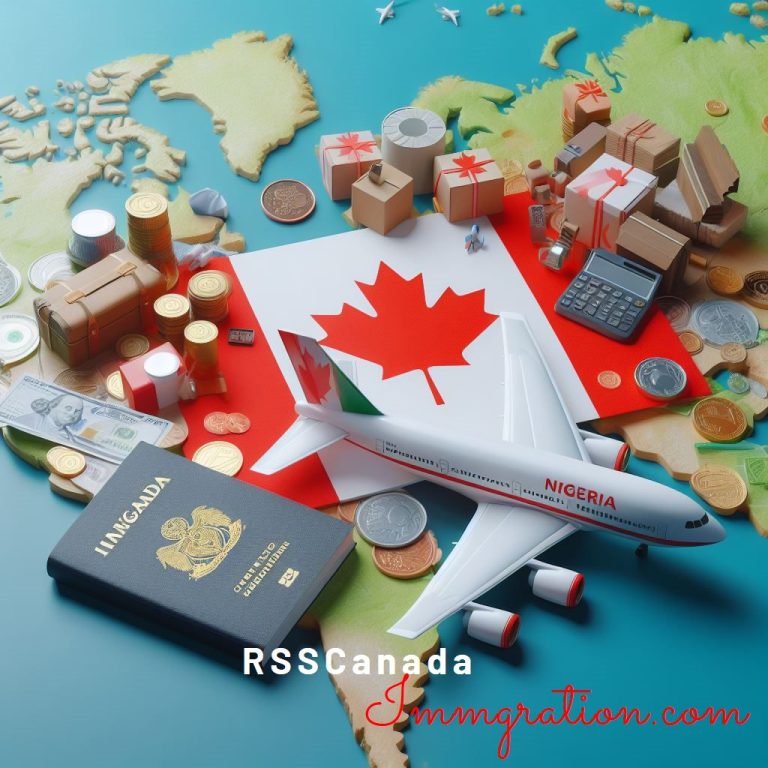Immigrate to Canada from the Philippines: A Comprehensive Guide
Immigrate to Canada from the Philippines
Canada is home to over 900,000 people of Filipino origin and is one of the top three source countries for new immigrants to Canada. Filipinos are attracted to Canada because of the economic opportunities it offers, as well as its safe and politically stable environment, thriving economy, highly developed healthcare system, and internationally recognized education system. If you are looking to immigrate to Canada from the Philippines, there are several immigration options available to you.

Overview of Immigrating to Canada from the Philippines
Reasons for Choosing Canada as a Destination
Canada is a destination of choice for many Filipinos due to the economic opportunities it offers. The country has a strong and diverse economy, with various industries and sectors thriving across the country. It is known for its high standard of living, quality education and healthcare systems, and commitment to multiculturalism. Canada values the contributions of immigrants and offers a welcoming and inclusive environment for newcomers.
Number of People of Filipino Origin in Canada
There are now over 900,000 people of Filipino origin living in Canada. This number continues to grow each year as more Filipinos move to Canada to immigrate, work, and study. The Philippines is one of the top three leading countries of new immigrants to Canada. The Filipino community in Canada is vibrant and has made significant contributions to the country’s cultural, social, and economic fabric.
Canada’s Commitment to Increasing Immigration Levels
Looking ahead, there will be more opportunities for Filipinos to immigrate to Canada due to the country’s commitment to increasing its immigration levels. Canada aims to welcome 465,000 new permanent residents by the end of 2023, with a target of 500,000 by 2025. This commitment ensures that Canada will continue to be a welcoming destination for immigrants from around the world, including the Philippines.
Immigration Options for Filipinos
Federal Skilled Worker Program
What is the Federal Skilled Worker Program?
The Federal Skilled Worker Program (FSWP) is one of the three immigration programs managed under Express Entry. It is designed for professionals and skilled workers worldwide who are seeking permanent residency in Canada. The FSWP aims to attract individuals with the skills and qualifications desired by the Canadian labor market.
Applications for the FSWP are typically processed within six months. To be eligible for the program, candidates must score a minimum of 67 out of 100 points on the Federal Skilled Worker Points Grid. They must also demonstrate sufficient settlement funds to support themselves and their family members in Canada. While a job offer is not required to apply for the FSWP, it can provide additional eligibility points and increase the chances of receiving an Invitation to Apply (ITA) for permanent residence. In order to be considered eligible, applicants must meet the following requirements:
- One year of full-time or equivalent paid work experience within the past decade in a skilled occupation categorized under the National Occupational Classification (NOC) codes 0, 1, 2, or 3
- A minimum Canadian Language Benchmark (CLB) score of 7 in English or French across all abilities (reading, writing, listening, and speaking)
- Canadian or foreign educational credential along with an Educational Credential Assessment (ECA) report. Additionally, FSWP candidates must score at least 67 points on the six immigration selection factors outlined by the Immigration, Refugees and Citizenship Canada (IRCC) department and demonstrate sufficient financial resources to support themselves and their family upon arrival in Canada.
Step-by-step application process
The application process for the Federal Skilled Worker Program involves several steps.
- First, candidates need to check their eligibility by assessing their qualifications,
- work experience,
- language proficiency, and other factors.
- If eligible, they must gather the necessary documents, such as educational certificates, language test results, and other supporting documents.
Candidates then need to create an Express Entry profile, providing accurate and up-to-date information about their background, education, work experience, and language proficiency. It is crucial to ensure that the profile reflects the candidate’s qualifications and skills accurately.
Once the profile is created, candidates can improve their profile and ranking if necessary. This can be done by obtaining a higher language proficiency score, upgrading education or obtaining a job offer supported by a Labour Market Impact Assessment (LMIA).
If a candidate is invited to apply for permanent residence through the Express Entry draws, they must complete the required exams and background checks. They also need to pay government processing fees and demonstrate proof of settlement funds. Finally, successful candidates will receive confirmation of their permanent residence in Canada.
What to do if I’m eligible for the FSWP
Once eligibility for the FSWP is confirmed, applicants may submit their Express Entry profile on the IRCC’s website, as this program is one of the three programs managed under this online application system. After uploading their profiles, candidates from the Philippines will receive a Comprehensive Ranking System (CRS) score based on various human capital factors, including age, education, work experience, and language proficiency. IRCC sends invitations to apply for permanent residence to the highest scoring candidates in the Express Entry pool bi-weekly, and the processing time for applications under this program is set at 6 months.
The ultimate goal is to admit more than 110,000 permanent residents annually through the Express Entry program. This program, alongside its various components, is one of the most alluring options for economic class applicants seeking to obtain Canadian permanent residence in the shortest possible time frame.
Provincial Nominee Program(PNP)
Provincial Nominee Program(PNP) is another viable choice for Filipino immigration candidates. As Canada is a federal country comprising 10 provinces and three territories, it is each jurisdiction’s responsibility to implement their own version of the PNP. This program enables provinces and territories, each with their unique population and economic needs, to create distinct immigration pathways.
Through the PNP, provinces and territories have the authority to nominate eligible skilled worker candidates for permanent residence within their boundaries. Filipino applicants may directly apply for the PNP if they fulfill the eligibility requirements. Alternatively, they may enter the Express Entry pool and be selected for nomination by a province, with the added benefit of receiving an additional 600 Comprehensive Ranking System (CRS) points. This almost guarantees a subsequent invitation to apply for permanent residence in an Express Entry draw.
Other Federal Immigration Programs
Canada offers various federal immigration programs aimed at facilitating the immigration of specific groups. Some notable programs include:
Caregivers: Canada provides opportunities for foreign nationals to work as caregivers and eventually obtain permanent resident status.
- Atlantic Immigration Program (AIP): Designed for individuals who wish to settle in one of the Atlantic provinces (Nova Scotia, New Brunswick, Prince Edward Island, Newfoundland and Labrador).
- Rural and Northern Immigration Pilot (RNIP): This program aims to attract foreign workers to settle in designated rural and northern communities in Canada.
- Agri-Food Immigration Pilot: Created specifically for individuals with experience in the agricultural and food sector.
Study Permits and Work Permits
Canada is a popular destination for international students from the Philippines due to the high quality and affordability of education, opportunities to work while studying, and the possibility of obtaining permanent residency upon graduation. Canada welcomed 551,405 international students from 184 countries in 2022, with 23,380 students from the Philippines.
To study in Canada, individuals must first be accepted to a Canadian designated learning institution. They can then apply for a study permit, which allows them to stay and study in Canada. After graduating, international students may be eligible for a Post-Graduation Work Permit (PGWP), which allows them to work in Canada for up to three years. Canadian education and work experience can be advantageous for candidates seeking permanent residency, as many immigration programs value candidates with Canadian education and work experience.
In addition to study permits, foreign workers generally need a work permit to work in Canada. Canadian work permits are divided into two programs: the Temporary Foreign Worker Program (TFWP) and the International Mobility Program (IMP). The TFWP requires a Labour Market Impact Assessment (LMIA), which proves that hiring a foreign worker will have a positive or neutral effect on the Canadian job market. The IMP does not require an LMIA.
Transitioning to Permanent Residence
Filipinos in Canada can also transition from temporary to permanent residence. Canada continues to accept temporary workers in priority occupations during the COVID-19 pandemic, and time spent in Canada as a temporary resident counts towards a permanent residence application. Work permits are issued through the Temporary Foreign Worker Program (TFWP), International Mobility Program (IMP), and International Experience Canada Program.
Family reunification is another pathway to permanent residence. Canadian citizens or permanent residents can sponsor their Filipino family members or spouse for permanent residency in Canada. The sponsored individuals must meet certain eligibility requirements, and the Canadian sponsor must provide financial support for the sponsored relative for a specific period of time.
Conclusion
Immigrating to Canada from the Philippines offers numerous opportunities for Filipinos to build a better future for themselves and their families. Canada values the contributions of immigrants and offers various pathways to permanent residence, including the Federal Skilled Worker Program, Provincial Nominee Program, study permits, work permits, and family sponsorship. Whether through economic immigration, study, or family reunification, Canada is a welcoming and inclusive country for Filipinos looking to make Canada their new home.
FAQs
What is the process for immigrating to Canada?
Canada offers more than 100 unique routes for immigration, and for personalized guidance on which path would best suit your needs, please complete our free evaluation form.
What is the process for making an Express Entry profile?
To begin the process, you must complete the electronic application form found on the Immigration, Refugees and Citizenship Canada website. If you meet the requirements, you will then be directed to establish your Express Entry profile, wherein you will need to furnish information such as:
· Your passport or travel documents
· Your verified Educational Credential Assessment (ECA)
· Your language proficiency test results
· Documentation of your available funds
· In the event of Canada being a possibility, are there any employment opportunities available?
· Any provincial nominations you have received (if applicable)
What is the required amount of work experience for the Canadian Experience Class (CEC)?
In order to qualify for the Canadian Experience Class (CEC), you must have a minimum of 12 months of full-time work experience (1,560 hours) within the last three years, or the equivalent amount of part-time work (such as 15 hours per week for 24 months).
What are the steps to take in order to immigrate to Canada using the PNP program?
To successfully move to Canada under the Provincial Nominee Program (PNP), you must secure a nomination from a Canadian provincial or territorial government. To begin the process, you must submit an application directly to the province or territory you wish to immigrate to and undergo an evaluation of your qualifications, such as education and work experience. If you meet the province or territory’s labor requirements, you may receive an invitation to apply for a provincial nomination. Upon receiving approval for the nomination, you may proceed to apply for Canadian permanent residence. Depending on the specific program, you may have the option to apply through the Express Entry system for a faster processing time, or through the regular application process. The main advantage of using Express Entry is the expedited processing for your permanent residence application
Does Canada offer free healthcare services?
Universal healthcare is accessible to Canadian citizens and permanent residents; however, eligibility for healthcare coverage may vary depending on the province or territory of landing. For more information on the free healthcare coverage provided by each jurisdiction in Canada, please refer to the website. Keep in mind that in some provinces, new permanent residents must reside there for a specified period before being eligible for free healthcare, so it may be necessary to have private health insurance during this waiting period.
Is there anyone who can be my sponsor in Canada?
Individuals who hold Canadian citizenship or permanent residence status have the opportunity to sponsor a variety of family members, such as their spouse, partner, children who are dependent on them, parents, grandparents, and in some instances, additional family members
Is it possible to travel to Canada without having a job offer?
Although it is possible to immigrate to Canada as a skilled worker without a job offer, having one can be beneficial. However, it is important to note that the majority of successful immigrants under Express Entry do not have a job offer. While having an eligible job offer can earn you additional points, it does not guarantee a permanent residence invitation. Meeting the eligibility requirements for at least one of Canada’s over 100 skilled worker programs, as well as receiving a high score for factors such as age, education, language skills, and work experience, can increase your chances of successfully immigrating to Canada without a job offer.




